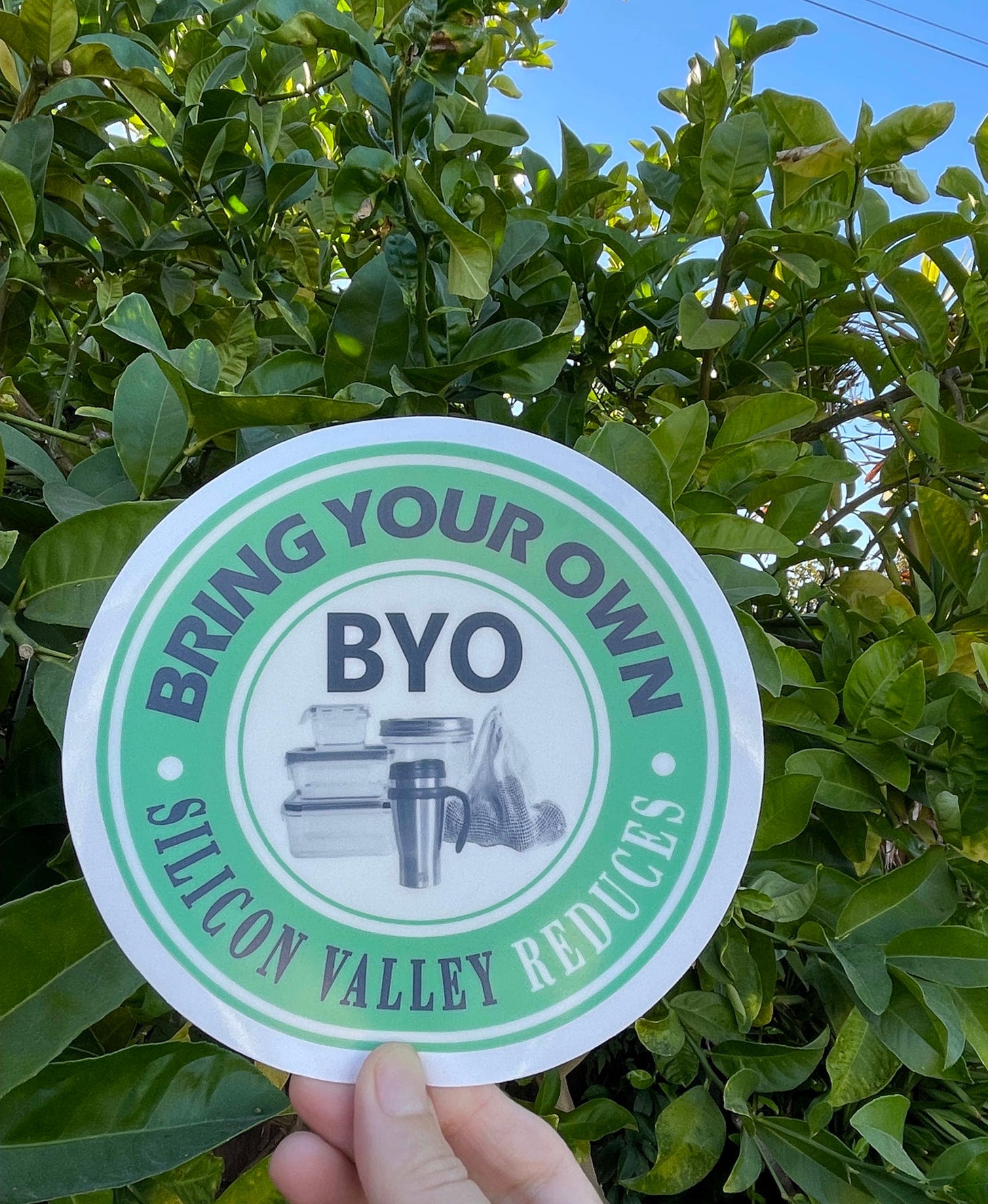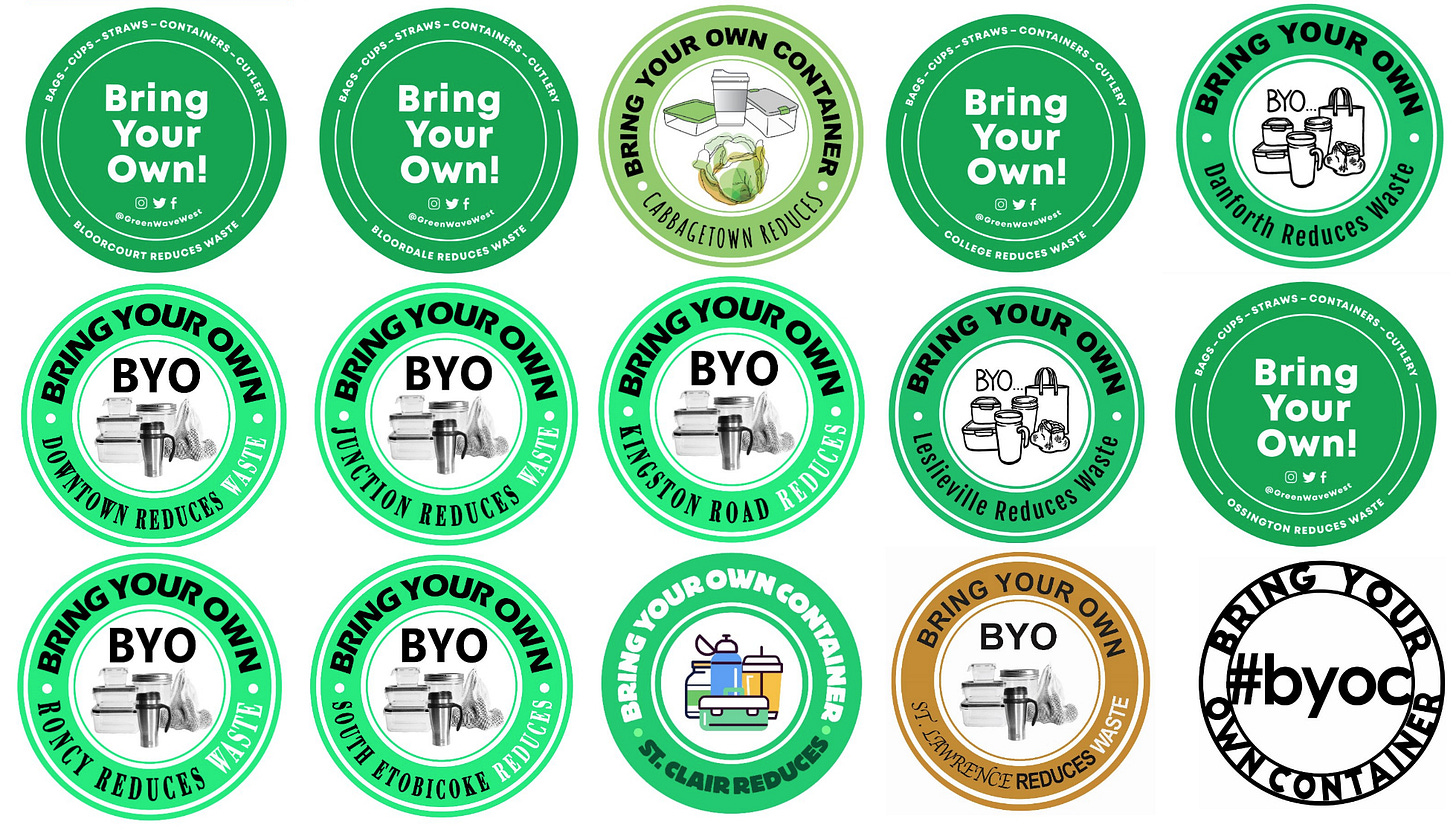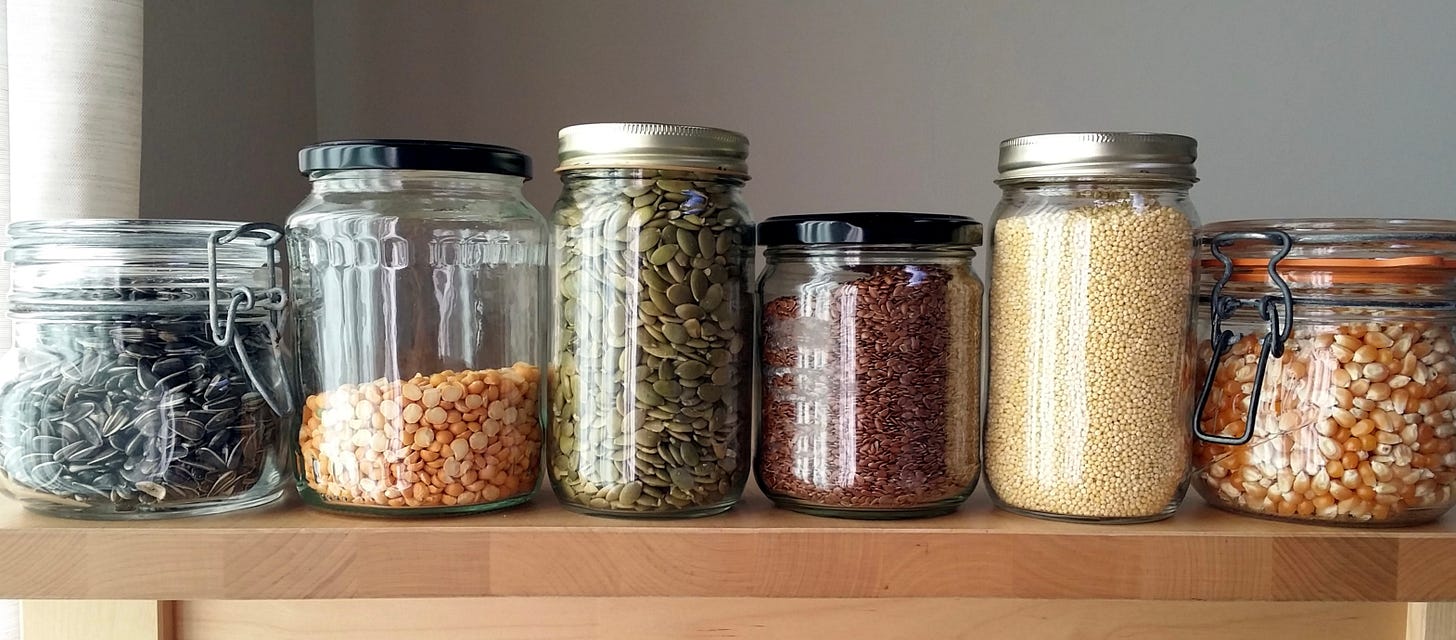How to Launch a Bring-Your-Own-Container Program in Your Community
A simple sign helps reduce single-use plastic waste
Imagine walking down the street with your reusable mug in hand, craving a cup of tea or coffee but not knowing if any of the cafés around you will serve you with your reusable mug. You notice a green and white BYO sign displayed in the café window in front of you, like a beacon. Immediately, you know that the business will welcome both you and your reusable mug.
Inside, you don’t take a deep breath before presenting your case. You don’t explain that you want to keep throwaway cups out of landfill. You don’t wait for a manager to approve your subversive request—"Please pour my drink here"—or feel like you've committed a borderline, shameful act. You simply hand over your mug, order your drink and enjoy!
The sticker in the image above will go into these kinds of businesses here in Silicon Valley, connecting small businesses with customers who choose to reuse—and motivate others to give reuse a try. Because the more people shop with reusables, the less single-use plastic waste chokes the natural environment and the more normalized serving customers with reusables becomes.
I picked up these window stickers last Friday. My goal this week is to get them into the windows of at least a few small businesses. If you own a small business here in Silicon Valley that accepts reusable containers for filling, please contact me.
Why do plastic waste-reducing initiatives matter as the world heats and burns? Single-use plastic pollutes the environment and harms people all along its lifecycle, from extracting and refining the fossil fuels that make plastic, to manufacturing, to disposal after one typically very short use.
How to start a similar program in your community
One woman, Tina Soldovieri, launched the reduces initiative in Toronto in the Roncessvales neighborhood in 2019. Fed up with how much recycling she and her family of five put out every couple of weeks, Tina decided to do something to cut down not only the amount of waste in her home, but also in her neighborhood.
Along with a few friends she recruited to help, Tina approached shops that already accepted BYO containers. Once a few businesses signed on, convincing others that did not accept reusables to do so became an easier sell. “So-and-so down the street accepts reusable containers.”
The idea quickly spread to 17 other neighborhoods in Toronto and branched out to other cities in Ontario, including Hamilton, Barrie and Ottawa. Find all the Canada Reduces groups here.
(I interviewed Tina earlier this year. You can read that here.)
During my interview with Tina, she referred me to the Canada Reduces page, which outlines how to start this initiative anywhere. That page lists three key—yet simple—steps, along with lots of helpful guidance on executing each one:
Connect with neighbors.
Get a sticker and contact businesses.
Spread the word.
While chatting with Tina, I said, “We need a similar program here.” Then I realized, I could start a similar program here. Tina sent me my sticker design, I now have those stickers and I have several volunteers lined up and ready to help.
Reusables are safe
While discussing this idea with the City of Palo Alto’s public works, a manager told me, “We did a quick check with the Santa Clara County and they said there are no restrictions on customers bringing their own cup, bag or container.” I’ll pass this information along to hesitant business owners. (Read about the safety of reusables during Covid here.)
Bring this initiative to your city and you’ll not only make a greater impact than one person reducing their waste, you’ll also support local small businesses, help build community and have fun with friends and neighbors as you work together for a good cause.
Find more waste-reducing strategies in my book.






Is the Silicon Valley program only offered in Santa Clara County? I'm in San Mateo County (San Bruno) and I'd love to see if we can get some of the businesses along San Mateo Avenue on board with this? Lots of small ethnic and 'mom and pop' restaurants and grocers.